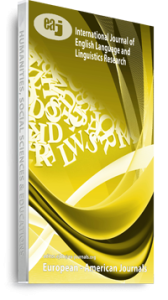This paper has emerged out of the conviction that linguistic theory has more to offer to translation theory than is so far recognized and vice versa. As Gutknecht (2001) claims, the translation theorists have made little systematic use of the techniques and insights of contemporary linguistics. However, two points must be emphasized: (1) although translation has existed for many centuries, it was not until the second half of this century that ‘Translation Studies’ developed into a discipline in its own right, and (2) although translation has taken on concepts and methods of other disciplines, “it is still conceived as a subdiscipline of applied linguistics” (Schaffner, 2004, p. 2). On the other hand, the past fifteen years or so have seen the focus of translation studies shift away from linguistics and increasingly to forms of cultural studies. There has also been a shift towards studies that have incorporated models from functional linguistics and Critical Discourse Analysis, locating the text within its sociocultural context. More recently, technological advances, which have transformed the working conditions of professional translators and researchers and have spawned new forms of translation, have also produced new areas of research, some linked to the effects of globalization and some to forms of intersemiotic translation. The present study, therefore, attempts to outline the scope of the discipline of translation studies (TS), to give some indication of the kind of work that has been done so far. More importantly, it is an attempt to demonstrate that (TS) is a vastly complex field with many far-reaching ramifications
Keywords: Cultural Studies, Intersemiotic Translation, Linguistic Theory, New Areas of Research, Sociocultural Context, Technological Advances, Translation Studies, Translation Theory

